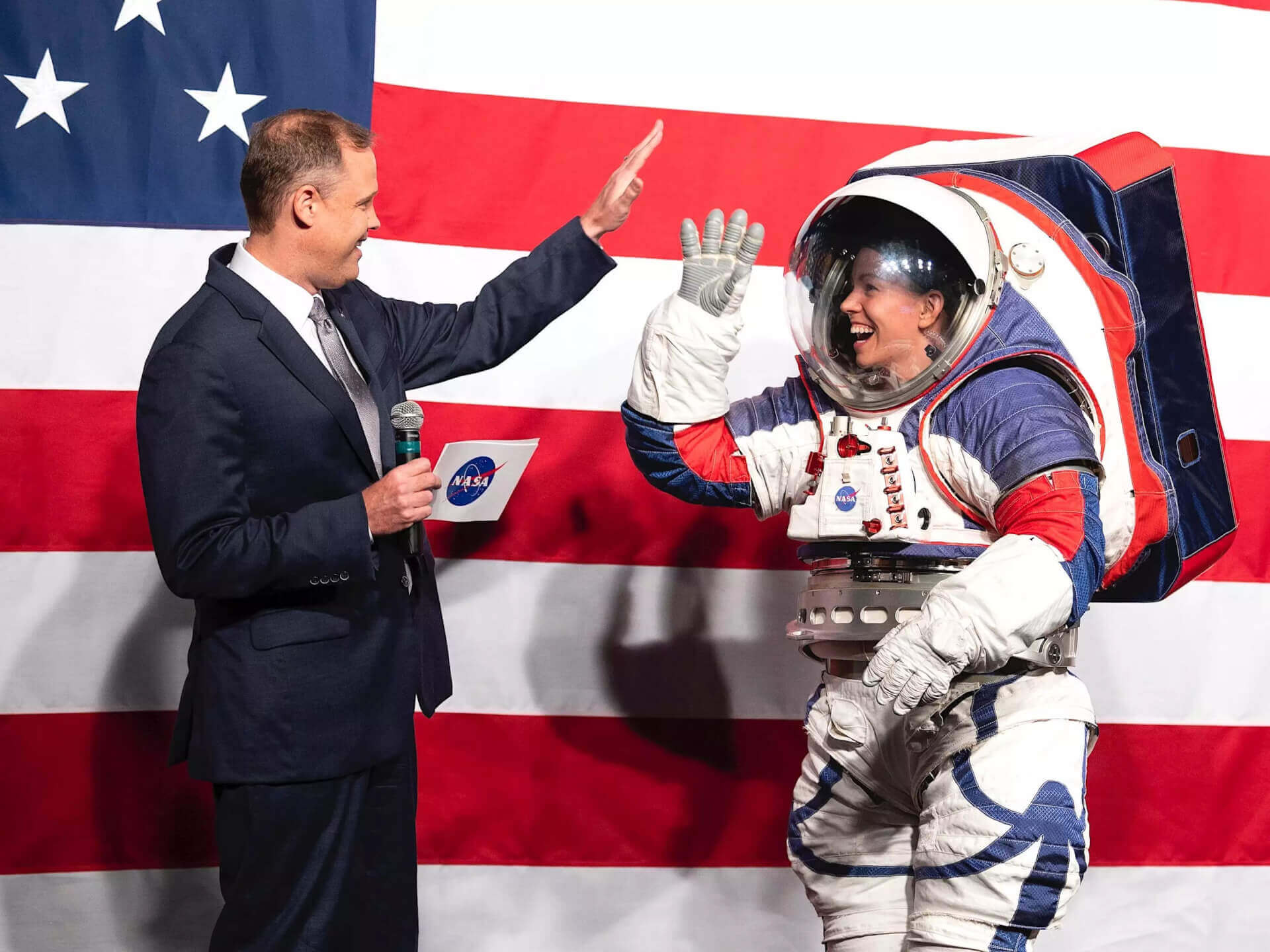On Tuesday, NASA announced that seven countries had joined the United States (US) in signing the Artemis Accords, a series of bilateral deals that aim to establish rules for the governance of behavior and the exploration of resources on the lunar surface.
The United Kingdom, Canada, Australia, Japan, Italy, Luxembourg, and the United Arab Emirates have signed the treaty with the US. Christian Davenport from the Washington Post has described the mix of countries as “eclectic”, noting that, while Tokyo has been a long-standing US partner at the International Space Station, it is interesting to see countries like Australia and the UAE, who are relatively new to the space exploration scene, join hands with this coalition. Dr. Megan Clark AC, the head of the Australian Space Agency, said, “We’re so proud that our agency, just two-years-old can stand shoulder to shoulder, with NASA and our counterparts from across the globe on the stage today to confirm our commitment to a safe, peaceful and prosperous future.”
The Accords, which were first announced in May, are supposed to build upon the existing 1967 Outer Space Treaty that bans nations from claiming sovereignty over the moon and other celestial bodies and prohibits the use of nuclear arsenal in space. NASA administrator Jim Bridenstine said that the new Accords are “intended to create norms of behavior that all countries can agree to so that we can keep peace and prosperity moving forward in space and avoid any kind of confusion or ambiguity that can result in conflict.”
The Accords are part of the US’ larger Artemis moon program, and signing them will now be a requirement for any nation or private company wishing to partner with NASA in its mission to send astronauts to the surface of the moon. Most recently, business magnate Jeff Bezos’ space company Blue Origin launched its seventh New Shepard rocket to test lunar landing technology for NASA as part of the Artemis program.
Among other features, the rules set by the Accords permit the extraction of lunar resources by private companies. Further, the Accords allow national and private entities to create “safety zones” around extraction sites to prevent conflict. As a part of its key principles, it specifies transparency, interoperability, peaceful exploration, registration of space objects, safe disposal of orbital debris, emergency assistance, heritage preservation, the release of scientific data, the preservation of outer space heritage, and the sustainable extraction of space resources. “There is nothing in the Artemis Accords that isn’t enshrined in the Outer Space Treaty,” Bridenstine said. “It’s a forcing function to get nations to comply with the Outer Space Treaty.”
US President Donald Trump’s government, as well as administrations of other countries with established space programs, view the moon as a crucial strategic asset, in part due to its long-term value in scientific research that could lead to future missions to Mars. Mike Gold, an acting associate administrator at NASA, said that the Accords will set a precedent and that the norm of behaviour set by its signatories will create a track record for the world to proceed with peaceful, transparent, and safe space exploration. “The Artemis journey is to the Moon, but the destination of the Accords is a peaceful and prosperous future,” he said.
However, not everyone has welcomed Artemis. Dmitry Rogozin, chief of Russia’s Roscosmos space agency, compared the Artemis Accords to an invasion akin to “Iraq or Afghanistan.” At Monday’s International Astronautical Congress, where he reiterated support to Russian moon exploration expeditions with China, Rogozin criticized NASA’s lunar mission as being “too US-centric,” saying that Russia would consider its participation only if the program implements the principles of international cooperation that are followed at the ISS rather than its moon-orbiting station called the Gateway.
Legally, the US is also prohibited from entering cooperation deals with China in outer space. However, NASA officials have said that the Accords will be successful even if Roscosmos and the Chinese National Space Administration are not signatories since they would provide guidelines for the rest of the world to follow.

